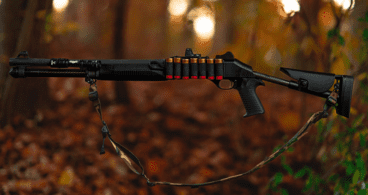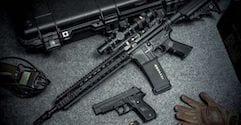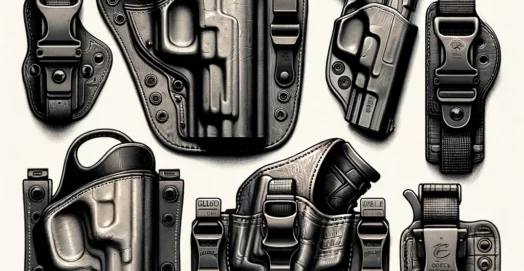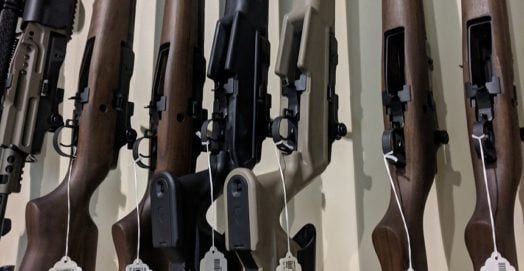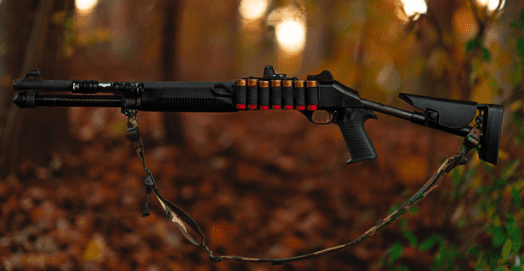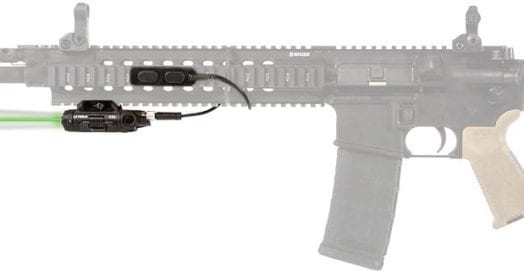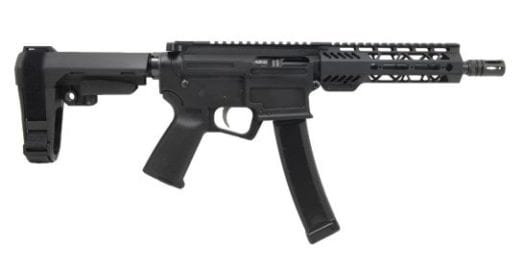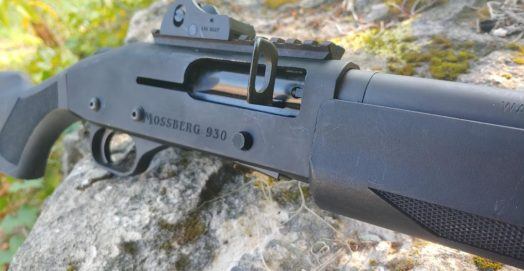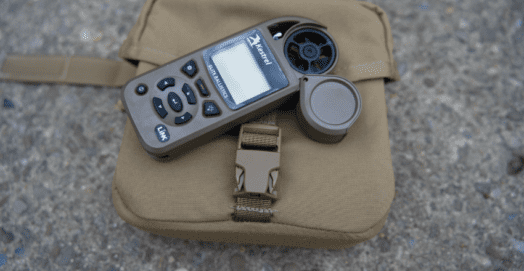The .380 ACP vs the 9MM for EDC & Concealed Carry: Which is Better?

Concealed carry has exploded in the last five years. Guns are getting smaller, so calibers like 380 ACP and 9mm are becoming increasingly popular. The question is, how small is too small?
There are lots of other comparisons to make – not just size. There’s also versatility, reliability, cost of ammunition and pistol availability as some manufacturers will only make a pistol in 9mm or .380 ACP.
This keeps people wondering what’s better for everyday carry (EDC), the 380 ACP or the 9mm? If you can’t decide which is better, read on to learn more about both, and find out where we choose to invest our hard earned money if we can only pick one.
Contents
A History of Both Calibers
The 9mm is by far the older round of the two. George Luger designed the round in 1902 with warfare in mind. He sent the round to the British, Germans and Americans for testing as a service pistol round. But the Germans were the first to adopt the round with the Imperial German Navy.
The 9mm round was originally chambered in the famous Luger pistol. The round went on to serve in the German military. And later the Brits, NATO, the United States and almost every other modern country adopted it.
Legendary gun designer John Browning introduced the 380 ACP in 1908. The purpose was to produce a round that people could use in those simpler blowback pistols. Their design made firearms affordable and easier for them to build by promoting a relatively small size.
They built the 380 ACP primarily for small self-defense handguns and this has remained the case over time. The round saw a dip in popularity throughout the golden days of revolvers and magnum cartridges. But the concealed carry popularity has brought the round back to the mainstream.
Pistol Size Comparison
When it comes to concealed carry and everyday carry in general, the smaller the gun is, the generally the better. A smaller, lighter firearm is more comfortable to carry over longer periods. Since you have to hide those concealed carry guns, smaller is better in that case, as well. Caliber often dictates the overall size of the firearm.
This has to do with the actual physical size of the bullet, as well as how they must build the firearm. A more powerful firearm needs to be stronger, which means it has to be bigger and heavier. The 380 ACP is a 9 x 17mm round, so they call it the 9mm short or the Kurz in Europe. This small round is considerably less powerful than the standard 9mm.
While the case is only two mms shorter, the projectiles are often lighter and require less power to operate. This makes the handguns smaller and often lighter. The 380 can produce some small, convenient pocket pistols. Take one look at the Ruger LCP or S&W Bodyguard and you’ll understand why they are so popular for concealed carry.
The 9mm, on the other hand, is a 9 x 19mm round that is significantly more powerful. They can propel a heavier projectile because they designed the round for service with police and military forces. However, 9mm handguns can still be quite small.
So, which is better, the 380 ACP or the 9mm? Some 9mms can even be small enough to be classified as pocket pistols. However, a pistol in 9mm will never be as small as a 380 ACP. Some people may not like a super small gun, but the fact remains a 380 ACP can be smaller than a 9mm.
Winner: .380 ACP
Capacity Comparison
Judging the capacity of an everyday carry pistol compared to the capacity of a duty pistol is a mistake. They don’t design concealed carry pistols to be offensive weapons or for an extended firefight. For military or police duty, they consider 13 to 20 rounds normal, but for everyday carry, 5 to 8 rounds are normal, and even recommended for beginners.
The difference is the capacity between the two calibers is minimal. When comparing firearms of a similar size, their capacities are almost identical. This is due to the fact the rounds are similar in diameter. The 380 and 9mm both use 9mm projectiles, so overall, they take up the same magazine size.
So does the 380 ACP or the 9mm win this one? While it’s uncommon, you can find high capacity 380s, like the Beretta 83 Cheetah and CZ 83. On average, concealed carry 9mm and 380s will often have similar or identical capacities when you judge them by size.
Winner: Tie
Terminal Performance Comparison
While the 9mm and 380 ACP share the same projectile size, they perform much differently. Projectile size is not the deciding factor for a rounds terminal effectiveness. Terminal effectiveness is a round’s ability to perform in the flesh and stop bad guys. Terminal performance is a mixture of projectile weight and design, as well as velocity, expansion, and penetration.
This means the projectile size may be the same, but the performance isn’t. The 380 ACP is the smaller overall round and less case capacity than the standard 9mm. The 380 ACP projectiles are also lighter than the standard 9mm projectile. Bullets stop a person by striking a vital target, like the heart, lungs or brain.
Alternatively, they can incapacitate by blood loss or pain compliance, but this is not a reliable method of stopping an attacker. A 380 ACP SIG V crown load is a 90-grain projectile that can reach a velocity of 861 feet per second when you use a compact pistol with a short barrel. The round hits and expands up to .50 caliber. A 380 projectile is a 35-caliber projectile, so the expansion is impressive.
The 380 ACP round penetrates up to 13 inches in ballistic gel, making it suitable for self-defense, according to the FBI. The 9mm SIG V crown projectile weighs 124 grains so when you use a compact pistol, the round reaches roughly 1,050 feet per second. And it can penetrate up to 18 inches of ballistic gel and expand up to .55 caliber.
Although the expansion is similar to the 380 ACP, the velocity and penetration is better. The 9mm is the longer, more powerful round that fires a significantly heavier projectile. It hits with more pounds of force and even expands slightly more. So, it’s no surprise who wins this competition between the 380 ACP or the 9mm.
Winner: 9mm
Cost Comparison
A shooter should be quite proficient with a concealed everyday carry firearm. This means a concealed carrier should constantly practice with their firearm. This is where ammunition and firearm cost comes into play. There was a time when 380 ACP was expensive because it wasn’t extremely popular or common.
However, in the last few years, the price has dropped massively as the round became more popular, so many companies produce the 380 ACP. Even though the price has dropped drastically, the 380 ACP is still as affordable as the 9mm. And the 9mm is less expensive when looking at ammo prices because it is a more mass-produced round
In terms of handguns, both the 9mm and 380 ACPs are quite affordable. Most manufacturers produce a 380 ACP and a 9mm concealed carry handgun, so prices do vary. Beretta, Glock, and Ruger all produce a compact 380 and 9mm. So, who’s got the upper hand, the 380 ACP or the 9mm?
What is consistent is the fact that the 380 is budget-friends with all three brands. So, handgun wise, the 380 might be slightly more affordable, but for ammo, the 9mm is cheaper.
Winner: Tie
Firearm Selection
For this section, firearm selection is going to mainly be about everyday carry handguns. But carbines will not be a winning or losing factor in this section. Both the 9mm and 380 ACP could carry the flag for concealed carry calibers. But the 380 ACP makes the overall smaller firearm, and choices in 380 ACP includes weapons by all major firearm manufacturers.
Finding a 380 ACP isn’t difficult. And the same goes for 9mm handguns. However, when it comes to 380 ACP, the selection genuinely boils down to the single stack, pocket-sized pistols. Double stacks exist but are relatively few and far between. For example, if someone wants a compact 380 ACP by Glock their options are limited to the Glock 42.
But, if someone wants a 9mm, they have the option of the Glock 43 or 26. There are also companies producing smaller 9mms, like Sig Sauer, making accessories for your handgun also an important consideration.
This plays out across many manufacturers. Smith and Wesson offer the Shield and M&P 9C, and Ruger has the LC9, the SR9C and the Ruger American compact. So, there are generally more options for 9mm compact handguns than 380 handguns. In this 380 ACP or the 9mm competition, the 9mm wins.
Winner: 9mm
Recoil Comparison
Recoil is something to consider when carrying a small, lightweight firearm. Generally, the lighter the firearm, the stouter the recoil is going to be. The 380 ACP is a lighter projectile, so it has a lower case capacity. When comparing similar firearms, the 380 will have less recoil. For example, when comparing the SIG 938 that is a 9mm and SIG 238 that is a 380, you’ll notice substantially less recoil from the 238 and it’s 380 cartridge.
The less recoil you experience, the faster and more accurate you’ll be able to place multiple shots on target. So, recoil isn’t just about hand pain and being manly. It influences how effective you can be with a weapon. In terms of recoil, this comparison of the 380 ACP or the 9mm says the 380 ACP is the winner.
Winner: .380 ACP
The Winner & Parting Shots
There are a lot of pros and cons of both choices between the 380 ACP or the 9mm. Both rounds make excellent self-defense cartridges and are perfect for everyday carry. The 380 ACP may fit some people better than the 9mm and vice versa.
When it comes to your EDC gun, it’s important to ensure the weapon you choose works for you. And finally, always store your handgun in a safe place away from young children.
When the ammo meets the pistol, we give the 9mm a final edge due to firearms availability, versatility, and ammunition cost.
Final Verdict (Our Winner): 9mm


